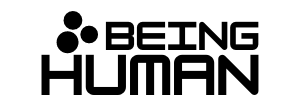How Stepping Back Moved Us Forward
These past few months as Interim CEO have been a profound reminder that at the heart of effective leadership lies something fundamentally human: our ability to connect with others. Stepping into the executive suite, I expected to spend my time wrestling with strategic decisions, financial models, and operational challenges. What I discovered instead was that the most critical moments—the ones that truly moved the organisation forward—happened when I set aside the spreadsheets and simply listened.
There's a moment that stands out vividly. During a particularly challenging week, one of our team came to the office clearly overwhelmed. My initial instinct was to jump straight into problem-solving mode, to offer solutions and next steps. Instead, I found myself applying the principles I've spent years teaching others: I told a brief story about my own struggles, then asked a simple question—"What's really going on for you right now?"—and then I just listened. What followed was twenty minutes of authentic conversation that not only helped resolve the immediate issue but strengthened our working relationship in ways that no strategic directive could have achieved.
This experience reinforced something I've long believed but perhaps hadn't fully appreciated in the context of senior leadership: our human skills aren't "soft" skills that we add on top of business acumen—they are the fundamental tools through which all meaningful work gets done. When I shared stories about our organisation's purpose during pitch nights and donor meetings, engagement levels soared. When I practised deep listening in team meetings, better solutions emerged. When I validated team members' challenges before offering direction, implementation became smoother and more committed.
The irony hasn't been lost on me that the higher up the organisational chart I climbed, the more essential my facilitation and connection skills became. Yes, I needed to understand the numbers, the market forces, and the strategic imperatives. But without the ability to hold space for others, to encourage their contributions, and to create psychological safety through authentic storytelling, even the best strategies would have fallen flat.
Perhaps most importantly, this interim role has reminded me that leadership is fundamentally about enabling others to reach their full potential. When I stepped back from having all the answers and instead created the conditions for others to bring their wisdom forward, the organisation didn't just function—it flourished. The best decisions emerged from collaborative conversations, the most innovative solutions came from empowered teams, and the strongest momentum built when people felt heard, valued, and connected to something larger than themselves. In a world increasingly dominated by technology and data, our humanity remains our greatest competitive advantage.

